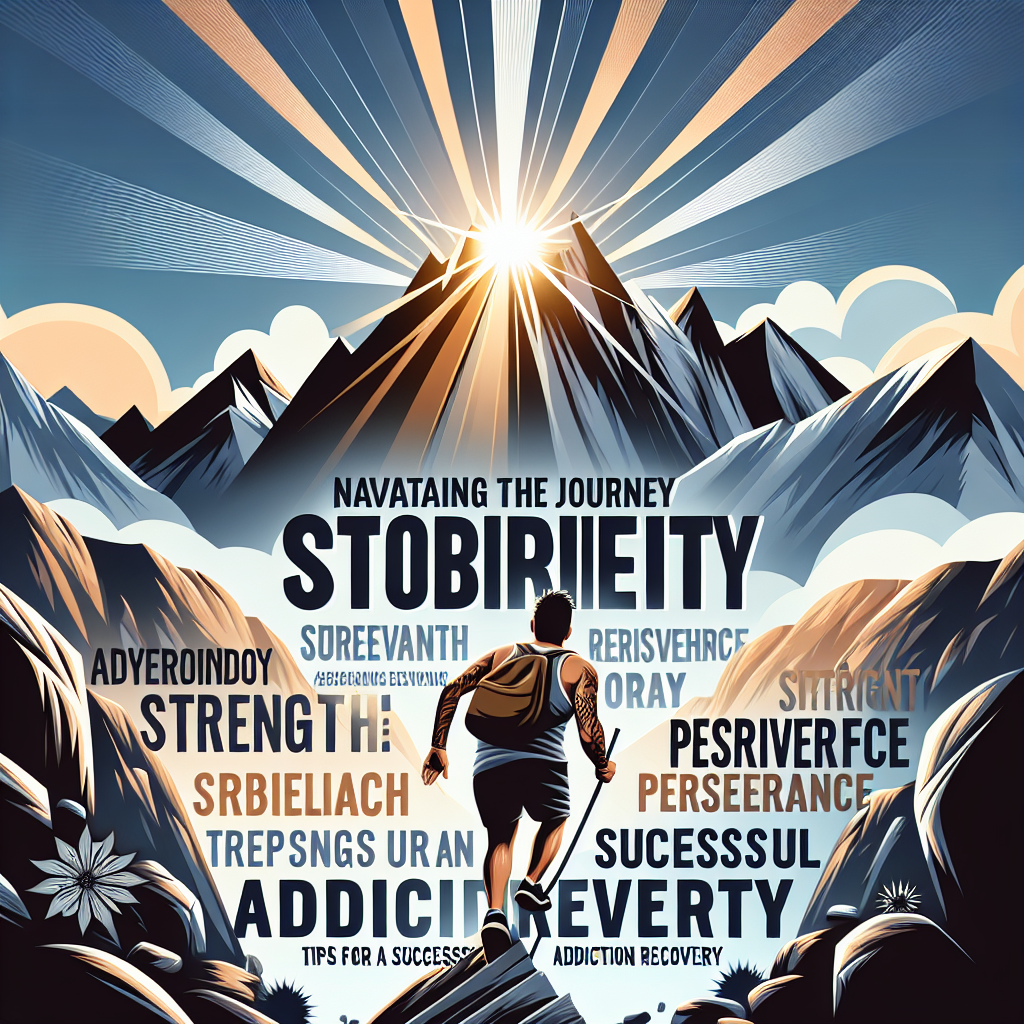Navigating the Journey to Sobriety: Tips for a Successful Addiction Recovery
Addiction can be a difficult and challenging road to recovery. Whether you are struggling with alcohol, drugs, or any other form of addiction, the journey to sobriety can be overwhelming. However, with determination, support, and the right tools, it is possible to overcome addiction and achieve a successful recovery. In this article, we will explore some tips and strategies to help you navigate the journey to sobriety and stay on track towards a healthy and fulfilling life.
1. Acceptance and Acknowledgement
One of the first steps towards recovery is accepting and acknowledging that you have a problem. Denial is a common defense mechanism that can hinder your progress towards sobriety. By recognizing the negative impact that addiction has had on your life and the lives of those around you, you can take the first step towards making positive changes.
2. Seek Professional Help
Recovery from addiction is a complex process that often requires the guidance and support of trained professionals. Whether you choose to seek help from a therapist, counselor, or a rehabilitation center, it is important to have a support system in place. Professional help can provide you with the tools and resources you need to overcome addiction and build a solid foundation for a successful recovery.
3. Build a Support Network
Recovery from addiction is a journey that should not be traveled alone. Building a support network of friends, family, and peers who understand your struggles can provide you with the emotional support and encouragement you need to stay on track towards sobriety. Attending support group meetings, such as Alcoholics Anonymous or Narcotics Anonymous, can also help you connect with others who are going through similar experiences.
4. Develop Healthy Coping Mechanisms
One of the keys to successful recovery is learning how to cope with stress, triggers, and cravings in healthy ways. Developing healthy coping mechanisms, such as exercise, meditation, or engaging in hobbies and activities that bring you joy, can help you manage your emotions and avoid relapse. It is important to find alternative ways to cope with difficult emotions and situations without turning to drugs or alcohol.
5. Set Realistic Goals
Recovery is a journey that takes time and patience. Setting realistic goals for yourself can help you stay motivated and focused on your path to sobriety. Celebrate small victories along the way and acknowledge the progress you have made. Remember that recovery is not a linear process and setbacks are a natural part of the journey. Be kind to yourself and stay committed to your goals.
6. Practice Self-Care
Taking care of yourself is essential to maintaining sobriety and promoting overall well-being. Make sure to get enough rest, eat healthy foods, exercise regularly, and practice self-care activities that nurture your mind, body, and spirit. Taking care of yourself will help you stay physically and emotionally resilient as you navigate the ups and downs of recovery.
7. Stay Positive and Stay Committed
Recovery from addiction can be a challenging and sometimes long process. It is important to stay positive and stay committed to your goals, even when obstacles arise. Surround yourself with positive influences and affirmations that remind you of your strength and resilience. Remember that you are capable of overcoming addiction and creating a fulfilling life for yourself.
FAQs
Q: How long does addiction recovery take?
A: The length of addiction recovery varies from person to person. Some individuals may achieve sobriety in a matter of months, while others may take years to fully overcome their addiction. It is important to be patient and stay committed to the recovery process, as it is a journey that requires time, effort, and dedication.
Q: Is relapse common in addiction recovery?
A: Relapse is a common occurrence in addiction recovery, as it is a complex and challenging process. It is important to remember that relapse is not a sign of failure, but rather a natural part of the recovery journey. If you do experience a relapse, it is important to seek support and guidance from a therapist, counselor, or support group to help you get back on track towards sobriety.
Q: How can I help a loved one who is struggling with addiction?
A: If you have a loved one who is struggling with addiction, it is important to offer your support, understanding, and encouragement. Encourage them to seek professional help and provide them with resources and information about addiction recovery. Be patient and compassionate, and let them know that you are there for them every step of the way.




Leave A Comment